Abia State was birthed from the womb of the old Imo State on August 27, 1991. It was a creation of former President Ibrahim Babangida. Other age mates of the state are Anambra, Delta, Edo, Enugu, Jigawa, Kebbi, Kogi, Osun, Taraba and Yobe. The new state came under the military administration of Group Capt. Frank Ajobena, 1991-1992. He was followed by a short civilian government under Dr. Ogbonnaya Onu, 1992-1993. Thereafter came military administrators again, beginning with Col. Ike Nwosu, 1993-1994; Navy Capt. Remi Ejoor, 1994-1996; Col. Moses Fasanya, 1996-1998; and Lt. Anthony Obi, 1998-1999. The democratic wind brought in Orji Uzor Kalu (now Senator), 1999-2007; Theodore Orji, 2007-2015 and Dr. Okezie Ikpeazu, 2015-2023.
By the time Abia is celebrating its 32 years of age in August 2023, it will be under the leadership of Dr. Alex Otti who will be inaugurated on May 29, 2023. He will be the 10th leader (administrator/governor) of the state since its creation in 1991.
Join our WhatsApp ChannelThe state has gone through different leadership experiments. After 32 years evidence abound that the state is far behind in terms of structural, human capital, agricultural and industrial development. A child of 32 years is expected to have developed and procreated, showing his achievements of sorts. But for Abia, it is to the contrary: deep-seated rural decadence, low urban infrastructure, undeveloped agriculture, lack of industries, corruption and indeed lack of human capital development.
Abia’s circumstance has been disturbing. As a major oil-producing state in Nigeria, it is expected that socioeconomic development would be breathtaking but the reverse has been the case. Abia is the eighth largest oil-producing state, with over 100 oil wells amidst installed flow stations and gas. It is estimated that daily production stands at 11,000bpd and an estimated reserve of 3.2bn barrels, making the state a force to reckon with. There is no doubt that the state should play host to a beehive of investors’ activities in the oil and gas value chain. But nothing of sorts, leaving the state ‘unindustrialised’ and its people in the throes of poverty.
In the second quarter of 2022, the state reportedly earned ₦1.6 billion from oil. Yet the state cannot pay salaries and pensions. Total domestic debt stands at about ₦107 billion while external debt stands at about $95 billion. This is what the Governor-elect will inherit. The government of Dr Okezie Ikpeazu was said to have inherited about ₦35 billion debt in 2015. Abians feel scandalised with this development as nothing is on ground to show for the state’s massive oil receipts. Rural development is utterly lacking: no roads, no electricity, and no water. Agriculture remains primitive. In each community infrastructure is available only by communal efforts. Primary Health Care has seen clinics dot the communities, but hardly do you find them functional. Aba, which is the industrial hub of the state is suffocating because there is no top-notch supporting infrastructure such as good roads. Rainfall sees everywhere flooded, including the internationally renowned market. It is not surprising why the Governor-elect is making Aba his cardinal objective.
Abia State is to be likened to the biblical haemorrhagic woman who was said to have “…suffered many things of many physicians, and had spent all that she had, and was nothing bettered, but grew worse”. From August 1991 to the close of the Peoples’ Democratic Party’s 24-year era ending in May 2023, the state has not done any better amidst huge oil earnings. The 32 years sharply contrast with the old Imo State era under the leadership of Dr Sam Mbakwe (God bless his soul) where infrastructure was topnotch. Rural roads were graded twice in a year, schools operated on extreme academic and moral standards, etc. The birth of Abia rather became a burden as leadership with vision disappeared. And the state began to bleed as it “suffered many things of many leaders”.
Observers have argued that leadership has been the bane of the state. The state took off with a military administrator and had a civilian interregnum before it fell back to the military for six years. This early epoch did not seem to have a vision for the state within its infancy. Then enter democratic rule in 1999 which came with it a dispensation of treasury looters, godfatherism and men of limited vision who all ended up not giving the state a development roadmap or master plan. Orji Uzor Kalu went to prison over corruption charges bothering on fleecing the state of about ₦7.1 billion while his company, Slok, was required to be wound up. His successor, Theodore Orji has seen himself in a running battle with the EFCC, even as a senator, over state funds allegedly laundered in multiple banks in the names of family members and companies. The outgoing governor, Ikpeazu, has also come under heavy surveillance, with the state accounts frozen in early April. His senatorial bid failed on account of his poor showing as governor. It is claimed that even in his village he is seen as an embarrassing failure. He owes many months of workers’ and pensioners’ salaries. A cross-section of Abians have expressed hope that he will play host to EFCC after office. The social media in Abia late last year was awash with images of a purported property the governor was said to have acquired in the USA. That was one of the side effects of his membership of the G5 headed by Nyesom Wike. But there is no such thing in the mainstream media. There is also no proof that the governor acquired such property. However, it underlines the suspicion that is rife in the state following the people’s discontent over mass poverty and decadent infrastructure while his administration lasts.
In the unsavoury leadership circumstance the state has found itself, it was little wonder that Abians urgently wanted a change during the recent elections. This is reflected in the massive votes given to the Labour Party’s Alex Otti and others for the federal and state legislatures. The wild jubilation that followed his announcement underlined the vigilance that followed the heated election when the Labour Party cried out that the PDP was involved in an underhand game to steal its victory. There were victory parties across the state for weeks following Otti’s declaration as Governor-elect.
Alex Otti has been described by many Abians as the right man for the job. Although this is not his first attempt at taking over leadership of the state, so much water that passed under the bridge robbed him of the chance, particularly in 2015 which was eventually decided in favour of the PDP at the Supreme Court. He comes to the state’s leadership pinnacle with a strong, rich educational and career background. A renowned economist, banker, investor and newspaper columnist, Otti is widely believed to possess the magic wand to resolve both the leadership and socioeconomic conundrum the state has found itself since 32 years ago. Observers quickly point to his eventual emergence without the burden of “godfatherism” which was the hallmark of previous governments between 1999-2023. Much of the socioeconomic decadence the state has suffered have been attributed to the pangs of godfatherism which led to abuse and misuse of resources of the oil-rich state as the well-being of the people took a backseat while politics raged and ravaged everything on its path.
READ ALSO: Abia’s Development Prospects Under Alex Otti
At the backdrop of the underdevelopment amidst an oil economy, all eyes are set on Otti for a huge difference. This is the reason Prime Business Africa engaged a cross-section of Abia’s professionals to lay a template for the Governor-elect.
An ex-banker, PDP Chieftain and businessman, Hon. Chidiebere Johnson is excited that Otti didn’t ride on the back of any godfather. This, he says, means that he has no burden of loyalty to any power wielder that will disrupt his governance vision. Even as a PDP loyalist, he says, “As one who has seen governance in the state for some reasonable time, I sincerely hold the opinion that the person of Dr. Alex Otti is whom Abia needs now in her chequered state of governance.
“When you talk about the socioeconomic status of the state, honestly, Otti has all that is required in terms of training, experience, contact, and exposure, to take the economy to an enviable level. The jubilation that greeted his victory is an indication that Abians have been in expectation of a real change. When analysed, it’s a change that must have depth, must be seen, must be felt, must be transformational and loud. With his emergence, Abians know this is the change they want”.
Hon. Johnson maintains, “Abia’s politics has bred a huge economic decadence. Otti has seen it all. He has an unquestionable capacity to change the narrative, by using this opportunity to be the maker of a modern Abia through examplary leadership that brings to the people the joy of the social contract between the government and the governed.”
He further notes that it will be worthwhile for Otti to look through the past governments, not quite in the form of probes but to ensure that he “entrenches standards and competence in governance and government. There must be proactiveness and firmness as Otti confronts issues of socioeconomic consequences in the state. There must also be emphasis on rural infrastructure; there is a great need to improve on what is said to be on ground and do more”.
For Chief Ferdinand Ibezim, issues of unemployment, infrastructure and the Aba industrial hub are at the root of the state’s development paradigm which the Governor-elect should tackle headlong to change the narrative. These form a triangle of development. Chief Ferdinand is the Managing Director, Selling Skills Support Services Ltd and the President, Right Selection Ltd. He is a highly experienced human capital development expert, marketing and organisational goal strategist and author of best sellers. He notes that Abia State has suffered because the “only thriving industry in Abia has been politics. But politics is not productive. The governor must address productivity to address unemployment and create productive sectors. This is because the government has no business with business. However, government must invest in infrastructure, provide the right policy framework and enabling environment for business to thrive”.
He believes that when businesses thrive employment will follow automatically just as the government’s revenue will rise. Aba, a leg of the ‘development triangle’, represents the industrial mix of the paradigm which will be the anticlimax of the interplay of “employment and infrastructure” that will change Abia’s story.
Chief Ferdinand holds that in “Aba, for instance, government can muster the private sector to create an industrial hub. In this instance, those into shoemaking would have a ‘shoe village’ just as the tailors would have’ tailors’ village’. The hub should operate under the right infrastructure which would bring together all the small-scale industries for which Aba is reputed overtime. Economy of scale would develop as sharing of not just skills but equipment will be topnotch and logically drive development”.
He says, “If I were the governor, what I would do is look at Abia’s geographical spread and find out what each is strong in. This will determine what kind of infrastructure each needs to help it develop in the direction of its economic advantage. Ikwuano LGA, for instance, has agricultural advantage. If the produce doesn’t leave the village for town then it is wasted and people will be unemployed. You will be amazed at how people will leave Lagos and Abuja and return to village if the supporting infrastructure exists to help them do what they are good at doing. I advise the Governor-elect to create an enabling environment for businesses to come in and they will employ more people and this will raise the economic situation of the state.
“Agriculture is a mass employer of labour. But it must be mechanised type of agriculture. The Governor-elect must invest in infrastructure, provide seedlings, tools, fertiliser, tractors, even loans or grants. It’s about a value chain. Areas blessed with palm oil, for instance, will need the kind of seedling that will help them drive the natural endowment in the environment. This can be related to manufacturing; partnering with private sector to come and create oil mills, create industries that can transform raw palm into several things such as soap making, and groundnut oil. Almost every part of the palm value chain can be used to create industries and create employment. And if the Governor-elect can replicate this across the agricultural capabilities of the local governments you can imagine the result”.
Chief Ferdinand condemns the “near zero scorecard of past governments which has been a curse of Abia. I think the major areas that have suffered because of the incompetence and outright wickedness of the previous governments have been the rural roads. My area, Ariam-Usaka, for instance, almost all the roads are impassable. No electricity. Nothing shows that government exists. Abia has got to as low as it can get to. The only way to go now is up. With Alex Otti’s experience and pedigree, Abia will move forward”.
“Dr. Otti should make Abia a hub of commerce. But it’s not the kind that will be import-driven. It’s the type driven by production. I don’t see why the Aba natural endowment in clothemaking can’t make Aba automatic magnet for people who want to buy clothings. First of all, let Aba dominate the cloth industry in South-East, Nigeria, West Africa and then Africa. These are milestones the governor should create in his development drive. Same goes for shoe industry, tools industry. I daresay that Aba alone can generate revenue for Abia beyond what oil does for states like Rivers. Abia’s relative peace should form the foundation for growth in Abia.
“Otti should focus on Aba as he has said repeatedly. He should get private sector involved to have a clear agreement, get the people buy in and let the private sector do roads and other infrastructure. It could be a Build, Operate and Transfer(BOT).
“He should learn from the footprint of late Dr. Sam Mbakwe of blessed memory, who made different parts of the state sub-units of economic growth and development. There were plans for Aba, Umuahia, Owerri, Okigwe. That’s what Otti should do for Abia State, create such hubs that will drive development based on the natural competitiveness of each environment. And of course, give purchasing power to the people by paying salaries, pensions and gratuities. All this will create economic activities and deepen growth. And the government will tax the people.
“Government should be serious with taxation by bringing more people into the taxation network. But this will be effective only when they are sure of what the government is doing. When they trust the government they will believe that there is a pathway tax revenue will help get to”, he advises.
Speaking to Prime Business Africa, Dr. Ken Osu, Economist and lecturer in the Department of Economics, University of PortHarcourt, urges Otti to show an early, marked departure from what he describes as the “bane of Abia”, noting that the state has been gripped mainly by “bad governance resulting from the imposition of undeserved, unqualified party loyalists through godfatherism.” He holds the view that such a situation has been responsible for “poor infrastructural development, less consideration for economic growth pattern, implementing policies lacking in economic benefit forecasts, poor welfare for the workforce and using politicians to implement economic policies as reward.”
Osu calls on Otti to ensure Abia is put on the development path by ensuring that “economic activities are reactivated in the Enyimba City; revamp existing production factories dead in the last 24 years; create a workable growth model that will enhance economic growth push, especially by organising the Local Government Areas based on their economic advantages(this, he said, is about rural development strategy which promotes investment ratios and equitable distribution across the state).” He emphasises that the governor must push strongly in the agricultural sector by training farmers in mechanised systems, attract foreign investors to the sector through a long lease land agreement, and give farmers access to very friendly agricultural loans.
For Dr Emeka Innocent Orji who is the National President of Resident Doctors, the governor must come up with a health sector roadmap. Part of this is to focus on reviving the Abia State University Teaching Hospital, payment of salary arrears and equipping the hospital. Primary Health Care must receive emphasis by employing doctors and qualified nurses in all the centres. There must be a “policy for compulsory training/retraining for PHC staff, compulsory licensing and supervision by the ministry. The governor should ensure that corruption is stamped out in the Ministry of Health which has failed in ensuring transparency in donor funds management for TB, malaria and HIV/AIDS.” He further asks the governor to focus on achieving the World Health Organisation’s Vision 2030 by ensuring availability of health infrastructure across the state. Also, there must be a revisiting of the Bill on Health Insurance.
Orji is worried about maternal and infant mortality which he describes as “high presently”. He calls for policy change to avert this sad report. Therefore, incentives to pregnant women are key: free antenatal services and free delivery, and free/subsidised child health services, especially for the “under fives.” He also calls for increased funding for TB and HIV services to ensure the availability of facilities and treatment. The governor should establish dedicated, well equipped centres with laboratories for testing and treatment in Aba, Umuahia. Finally, Orji calls for “auditing of the Ministry of Health with respect to donor funds.”
Mr. Chinedu Aboajs, a Field Operations Supervisor with Exxon Mobil, is disappointed with successive governments in the state, describing it as scandalous and shameful that Abia, as the eight largest oil producer in Nigeria, has not turned its receipts into development. He frowns at the “lack of vision and capacity as exhibited by successive governments in the state.” Noting that Abia is suffering from immense infrastructure deficit, he calls for a radical approach to change the narrative, urging the government to use oil revenue as “seed capital” to drive massive infrastructural development in Aba and Umuahia. Oil revenue should be deployed in the rebuilding of the industrial complexes in the state to place it on the path of economic growth.
Aboaja is thrilled by the governor’s strong background in economics, finance, and private sector. He calls on the governor to “leverage his connections to drive for value addition across the oil and gas value chains, through aggressive exploration and development of new oil wells to boost the state’s daily production because Nigeria is currently struggling with meeting OPEC’s quota.” Otti “should source for partners to develop the gas sector which is priced at premium apart from its clean hydrocarbon source. Developing the gas sector will transform Abia into a power-generating hub as it will be positioned at the forefront of maximising the recent presidential accent which empowers states to generate, distribute and sell electricity. The governor should also consider investing in modular refineries to add greater value, including massive employment opportunities. There should be training of both low and medium-level manpower in the oil and gas sector to continue to enhance the state’s opportunities.”
An industrialist and Chief Executive Officer of Logus Investments Ltd, Prince Innocent Eleogu, on his part calls on Otti to move fast to bring Abia on the expected path of development. Frowning at the failure of successive governments in the last 24 years, he calls for massive investment in rural development and agriculture which he believes holds the key to arresting urban migration, youth unemployment and bringing about the much-needed foreign direct investment. He wants the governor to inject funds into critical sectors of the state. Otti should run a slim, smart government by doing away with multiples of “special assistants”, and give more room for technocrats to work for him, he submits.
Eleogu further calls on Otti to leverage the recent presidential accent to the Bill that empowers states to produce and distribute electricity and also provide rail transportation. He wants Otti to use this opportunity to galvanise the South-East governors for what he calls “South-East economic integration through an economic forum of the states” which will harness opportunities in transportation, communication, power, etc. He is particular about the impact of the railway. For him, Aba, as industrial hub, needs the railway to enhance productivity and revenue as it will ensure easy movement of goods and people. He notes that in 2017 alone, “goods worth about ₦1bn moved out of Aba weekly. In one full year that would stand at ₦52bn. If Otti can muster a robust economic integration of the region, the state would hit a goldmine in its revenue base. Even if there is, for instance, a five percent tax, the state would have about ₦2.6bn as a direct assessment tax. You can imagine what it would do for the state.”
As it is said, “The ball is in the governor’s court.” There is massive goodwill and support for Otti and his Labour Party across the state. The people have placed all their hopes for a modern Abia in him. If he moves in the direction the people expect of him, there is no doubt that he will pass for the “maker of a modern Abia State.”

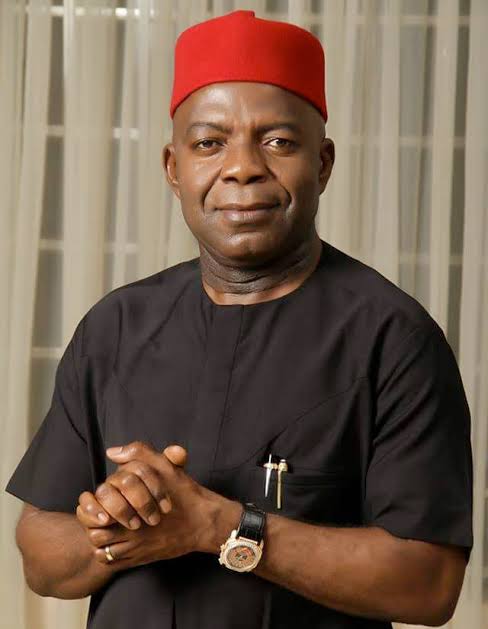


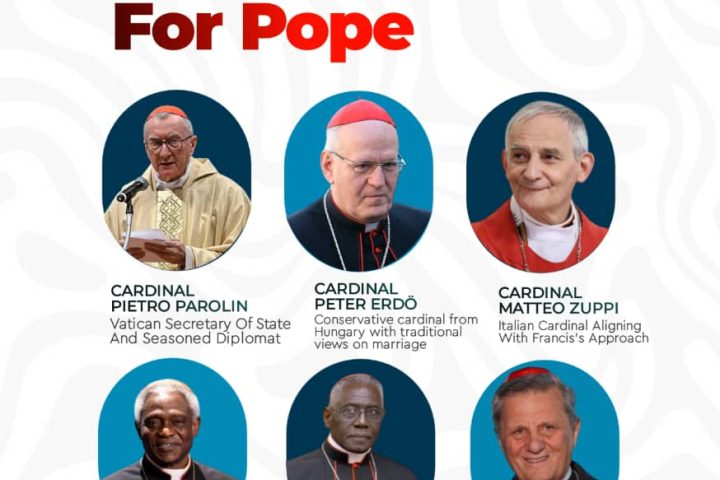
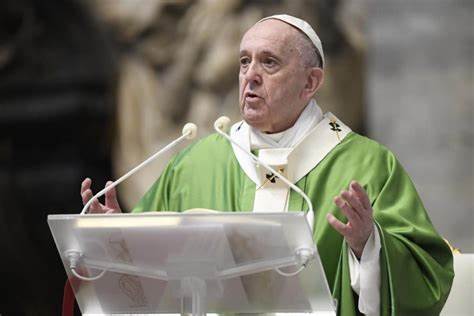
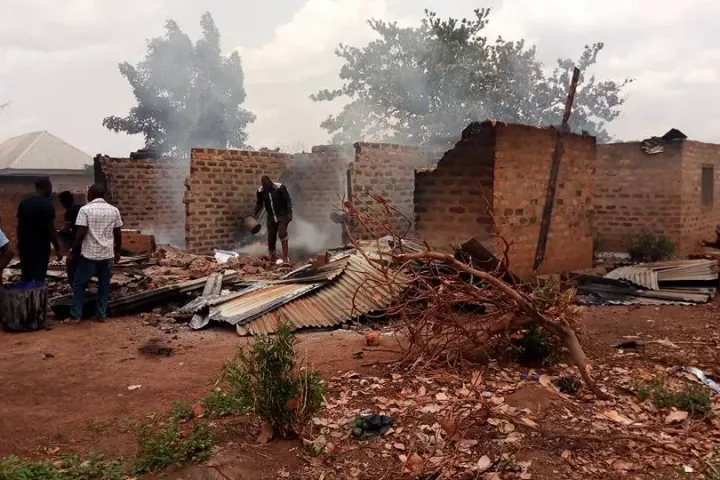








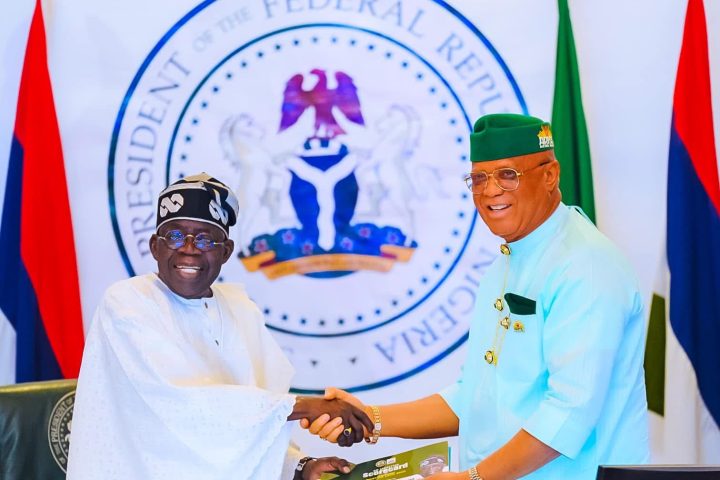

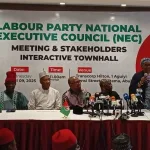
Follow Us